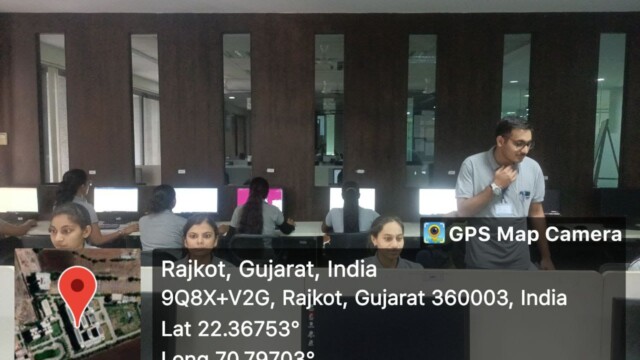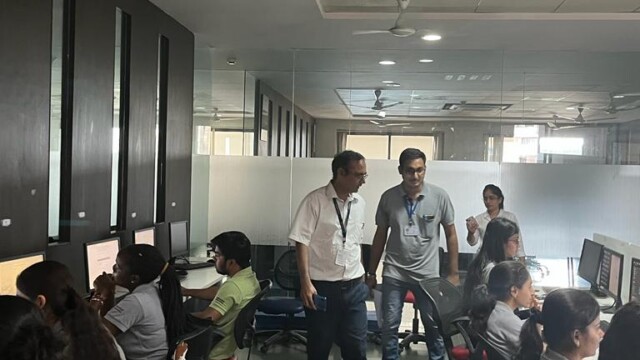Software engineering is the process of designing, developing, testing, and maintaining software. It’s an ever-evolving field that requires both technical and soft skills. If you’re interested in becoming a software engineer, it’s important to have a plan and take the necessary steps to build your skills and knowledge.
In this blog, we’ll provide a step-by-step guide to becoming a software engineer. We’ll cover topics such as education, coding boot camps, internships, networking, and continuing education to help you pave your way to a successful career in software engineering.
Learn a programming language
Programming languages are tools used to create software and applications. Java, Python, and JavaScript are popular choices due to their versatility and widespread use. Deciding which language to learn depends on your goals and interests. Once you have chosen a language, start with the basics like syntax and data types. Practice regularly and experiment with code to gain a deeper understanding. Learning a programming language can open up opportunities for a career in tech or enable you to create your own projects and tools.
Pursue formal education
While it is possible to enter the software engineering industry without a formal degree. But, pursuing one can have several benefits. Firstly, having a degree can provide a foundation of theoretical knowledge that may not be easily obtained through self-study or on-the-job training. Secondly, many employers require or prefer candidates with a formal degree. Some common degrees in the field of software engineering include a bachelor’s degree in computer science or software Engineering and a master’s degree in computer science or information Technology. Pursuing these degrees can lead to better job opportunities and potentially higher salaries in the long run.
Practice, practice, practice
If you want to improve your coding skills, practice is essential. The more you code, the more at ease and competent you’ll become. It’s important to challenge yourself with coding problems and puzzles to expand your knowledge. Building projects are also an excellent way to gain practical experience and put your coding skills to use. Continue to practise and don’t be afraid to make mistakes. Learning from them will help you grow as a programmer.
Build your skills
To become a proficient programmer, it’s essential to build your skills. The more you practice, the better you’ll get. Start by learning programming languages like Python, Ruby, JavaScript, C#, Java, or C++. Teach yourself how to program using online resources, books, and video tutorials. Try out different coding challenges to improve your problem-solving abilities. Collaborate with other programmers and participate in open-source projects to learn from their experiences. By investing time and effort into building your programming skills, you’ll increase your chances of success in the tech industry.
Network
Networking is essential for software engineers who want to advance their careers. Attending tech meetups, hackathons, and other events is a great way to meet like-minded professionals and expand your knowledge. These events provide opportunities to learn about new technologies, gain insights into industry trends, and discover job openings that may be a good fit for your skills and experience. By building your network and staying engaged with the tech community, you can open up a world of possibilities for your career growth and development.
Get an internship
Getting an internship is a crucial step in becoming a software engineer. Internships provide valuable experience and allow you to work alongside professionals in the industry. It can help you develop your technical skills, and communication skills, and gain real-world experience. Internships also give you the opportunity to network and make important connections in the industry. To get an internship, you can apply through job boards, attend career fairs, or directly reach out to companies you are interested in.
Apply for the job
Good work, you’ve made it to the last step. Now all that is left is to apply for the jobs, which involves preparing a strong resume and cover letter, searching for job openings, and submitting applications. Networking and preparing for technical interviews are also essential in increasing the chances of landing a software engineering job.
Conclusion
In conclusion, pursuing a career in software engineering can be both challenging and rewarding. It requires a combination of technical and soft skills, along with a strong educational background.
Marwadi University provides an excellent platform for students to pursue their education in software engineering. With a highly experienced faculty, state-of-the-art infrastructure, and industry collaborations, Marwadi University ensures that students are well-equipped to tackle real-world challenges in the field of software engineering.
So, if you’re interested in pursuing a career in software engineering, Marwadi University can be a great place to start your journey.
















 International Airport
International Airport  Railway Station
Railway Station  GSRTC Bus Port
GSRTC Bus Port 


